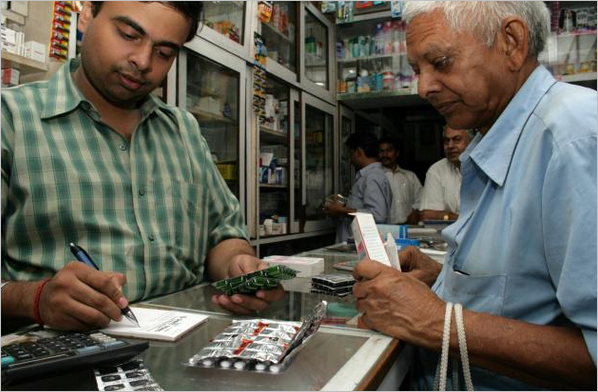 Pfizer and Merck & Co., known as MSD outside the United States and
Canada, through a subsidiary, have entered into an agreement to explore
the therapeutic potential of the combination of Pfizer’s crizotinib
(Xalkori) with Merck’s investigational anti-PD-1 antibody pembrolizumab,
in a phase 1b clinical study evaluating the safety and tolerability of
the combination in patients with ALK-positive advanced or metastatic
non-small cell lung cancer (NSCLC). The financial terms of the
agreement were not disclosed.
Pfizer and Merck & Co., known as MSD outside the United States and
Canada, through a subsidiary, have entered into an agreement to explore
the therapeutic potential of the combination of Pfizer’s crizotinib
(Xalkori) with Merck’s investigational anti-PD-1 antibody pembrolizumab,
in a phase 1b clinical study evaluating the safety and tolerability of
the combination in patients with ALK-positive advanced or metastatic
non-small cell lung cancer (NSCLC). The financial terms of the
agreement were not disclosed. “This collaboration between Pfizer and Merck is just one example of the willingness of sponsors to work together in an effort to accelerate progress against some of the most difficult-to-treat cancers,” said Dr. Mace Rothenberg, senior vice president of clinical development and medical affairs and chief medical officer for Pfizer Oncology. “Understanding the effects of combining one drug, Xalkori, which inhibits an abnormally activated enzyme in patients with ALK-positive metastatic lung cancer, with the investigational drug, pembrolizumab, which harnesses the body’s immune system to fight cancer, is vital if we are to continue to advance the care of lung cancer patients.”
This multi-centre, open-label clinical study is expected to begin in 2015. Pfizer will conduct the study.
“We are pleased to build upon our ongoing collaboration with Pfizer to evaluate potential combination regimens incorporating Merck’s investigational immunotherapy pembrolizumab,” said Dr. Eric Rubin, vice president, Oncology, Merck Research Laboratories. “Evidence from early studies of pembrolizumab monotherapy together with Xalkori’s proven targeted therapeutic approach provides the scientific rationale for evaluating this combination for the treatment of lung cancer.










